As well as sharing her passion for writing, WA’s much-loved Veronica Zundel talks honestly about the deep valleys in her life – including her brother’s death, caring for a child with special needs and facing cancer twice
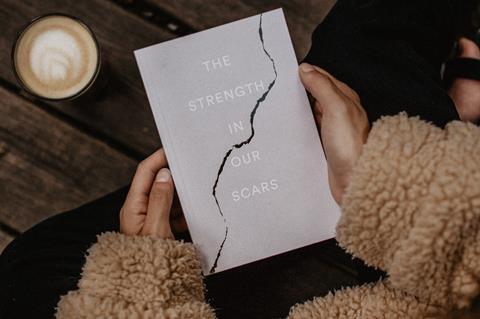
I was born in Coventry in 1953. Both my parents were Austrian and met at medical school in Vienna. Just before the Second World War Dad followed Mum to the UK because they were going to get married. Mum was Jewish and her immediate family were killed in the war.
An emerging faith
When I was a young teenager I was looking for some support beyond my family, because my brother was ill and things were very difficult. I had this logical train of thought that the only person I could turn to was God. Even though I didn’t think I believed in God, I thought I might as well give it a try!
I started going to a church youth club, then went to the Baptist church it was attached to. I got baptised when I was 16 and remember coming up out of the water thinking: “Now I’ve started a new life.”
My parents came to my baptism and were quite moved by it. They had never been against me being a Christian, and they could see that it was giving me some support and stability that my brother didn’t have. He was quite mentally ill at this point.
As a teenager the people I mixed with were into sex, drugs and rock and roll. I was quite a moral child, just into rock and roll. I would go to gigs every week at the local polytechnic, which is now Coventry University. I saw The Who and The Kinks, Traffic, Bonzo Dog Doo-Dah Band and others. I’ve come to the conclusion, after many years, that my natural vehicle for worship is rock music.
I believe that every mountaintop experience has a corresponding deep valley experience
After school I went to Lady Margaret Hall in Oxford to read English. In my first term I had quite an overwhelming spiritual experience. People were asking if I was baptised in the Spirit. I said to God: “I really don’t like the sound of this – is something you want to give me? I will accept it, even if it means giving up things.” I went home and felt nothing. In the morning, I started reading my Bible and the words leapt off the page. I went around with a huge grin; my jaw was literally aching.
Not long after I had a huge crash mentally, and got what I think was my first episode of depression. I felt very low and as though my life was over. I also got quite aggressive with my then boyfriend. I believe that every mountaintop experience has a corresponding deep valley experience. If you look through the Bible, Moses goes up the mountain and gets the commandments, then he comes down and finds the people have made an idol. Elijah has this tremendous victory on Mount Carmel, and then he goes into a huge depression.
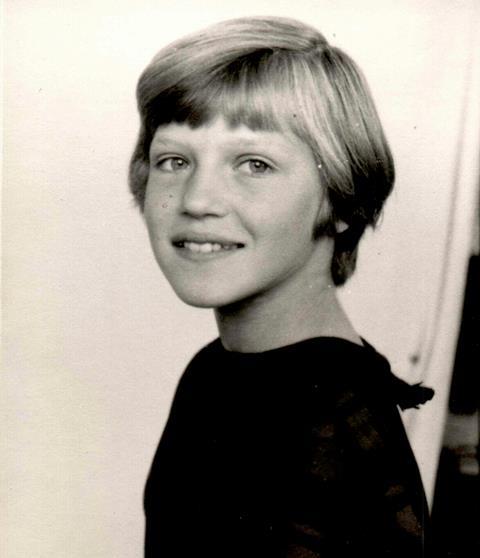
Finding my career
I was convinced I was going to become a social worker. I think it was connected to my brother; I couldn’t help him, so I wanted to help others. He died by suicide in 1975, in my final year at university. He had been in a psychiatric hospitals on and off for nine years.
I did not succeed in getting on a social work course, so my mum suggested I try teaching. I started a teaching course but dropped out after one term, when I realised I hated school!
I then had an aptitude test with the Vocational Guidance Association and they said my verbal skills were high, so they suggested I work in publishing. I got a junior job with Crusade and Third Way magazines. A lot of the time I was assistant to the editor of Third Way and would write and edit bits for the magazine. I loved it and felt like I had found my niche.
Sadly after two years they decided they couldn’t afford me. I was devastated but, funnily enough, four years later I got the same job back, at a higher level. The company was under different ownership with a different editor who happened to be someone that I already knew quite well.
I just walked into the job because I’d done it before. This time I was assistant editor rather than just editorial assistant. The job was three days a week, which meant I could do freelance work part time.
I edited a book of women’s poetry for Lion Publishing and started writing for Woman Alive, when it was called Christian Woman. I also wrote Bible reading notes for Scripture Union. I did that for about 15 years, and then I switched to doing the same for the Bible Reading Fellowship.
During that time I also started writing books – my first was a book on dating. I think once I started writing seriously, I realised that it was something that I’d always been destined to do. I want people to read what I’ve written and say: “Oh, I never knew anyone else felt like that. I recognise myself in this.”
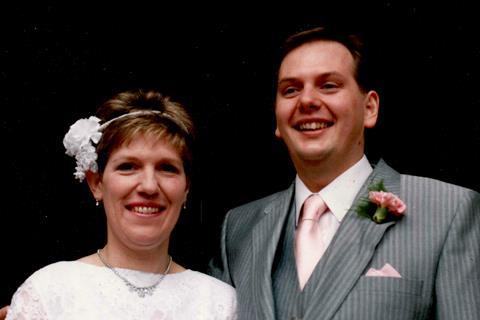
Meeting my husband
I met my husband at a weekend conference, which was an offshoot of the Greenbelt festival. A friend of mine had dropped out of doing some workshops on feminism and asked me if I would do them. After one of the plenary sessions, this man, Ed, bounced up to me and said: “I think you’re fascinating.”
I wasn’t very impressed, but he was persistent!
I’ve had certain friendships in my life with people who were very different from me, and they’ve always been real learning points. I had this gut feeling that he was going to be one of these people. I didn’t realise I was going to marry him!
When we couldn’t get pregnant, I found out I wasn’t indifferent
We married after two years of dating, when I was 36. Ed is extremely different from me. He’s an engineer and almost certainly on the autism spectrum. He was brought up Christadelphian and I felt we had nothing in common, but now we’ve got 34 years of marriage in common. We gave ourselves a couple of years before we tried for children. We’d both been living independently for a long time so I thought we needed time to adjust.
I thought I was fairly indifferent about whether we had a baby or not. And then when we couldn’t get pregnant, I found out I wasn’t indifferent. It deeply affected me and I had a complete breakdown, which involved lots of crying, outbursts of anger, an inability to do more than simple daily tasks and intrusive thoughts of self-harm.
But then we went away for a weekend of prayer for healing based on the book Healing the Family Tree by Dr Kenneth McAll (SPCK). The actual weekend itself was a bit wacky to be honest, but I met a woman there who also had a brother who died by suicide. She said she had a gift of praying for people to have babies, and so she prayed with me. My son was conceived the next day. John was born in 1994 when I was 41.
Motherhood
I found being a mother very hard, because my son didn’t behave like other babies. He never went to sleep before half past eight at night, and he wanted entertaining all the time. Initially we felt it was because he was very intelligent (he spoke to us at six months), but then we began to think that something was not quite right.
We started having investigations and, when he was seven, they diagnosed him with something called nonverbal learning disorder, which means that his verbal skills are way ahead of all his nonverbal skills.
It took us three and a half years to get a statement of special needs. During that time, he was out of mainstream school as we weren’t prepared to let him go back in without a statement. We then had a period of moving him from school to school to find somewhere he could both be happy and learn. Eventually his second attempt at sixth form was in a specialist unit in mainstream. That was brilliant.
Learning from suffering
In a recent sermon I said that if we don’t have a theology of suffering, we won’t have a good theology of resurrection and life. The wilderness times are the times when we mature spiritually.
Suffering is a natural part of life and it is a natural part of Christian life. I’ve been through two lots of breast cancer. The first time was in 2001. I had what my husband calls ‘breast cancer light’, as the tumour wasn’t even in the breast; it was in the armpit tissue. I simply had surgery to remove the lump then radiotherapy. Second time around was in January 2017, when I had the lot: double mastectomy and chemotherapy.
My husband was very supportive and I think I probably got through it by writing poems, because I was in the middle of doing an MA on writing poetry. I had to take a year out of the course, but I kept writing.
The Franciscan priest and writer Richard Rohr talks about the two halves of life: the first half is when you put your life together to establish your career and your family etc. The second half is when you have to let go of all that, and start concentrating on your inner life but the only way that happens is through some kind of suffering.
I can see that very much happening in my life. As you get older, it is a process of letting go of a lot of things…hopefully to find things that are more eternal.
Veronica Zundel writes a regular column for us – see page 48 for her latest offering.
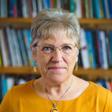












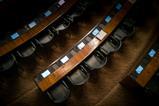
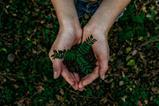


















No comments yet